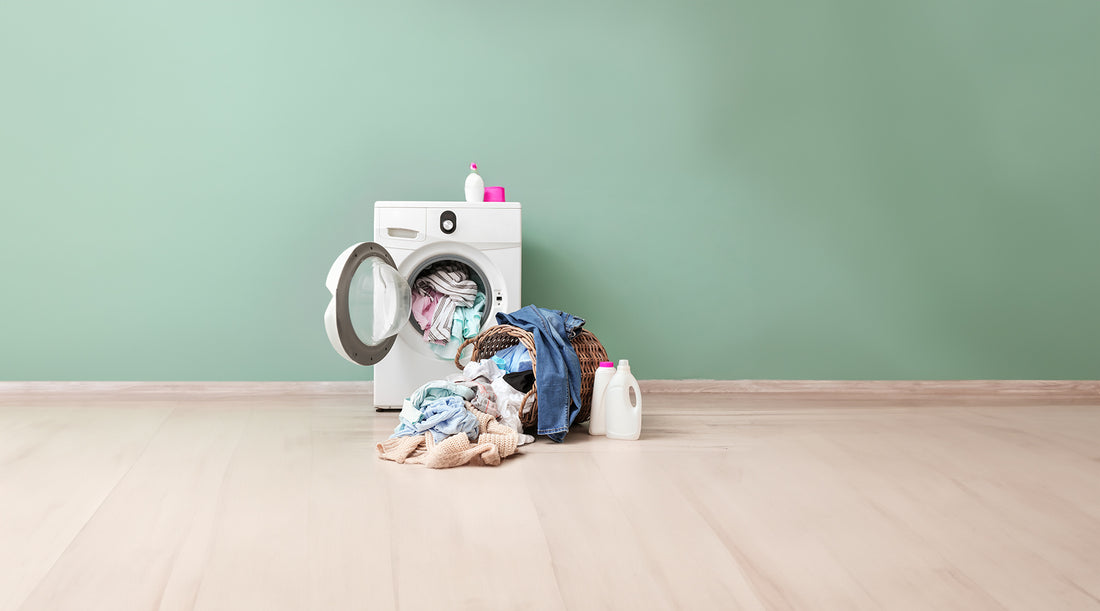To be honest, most people don’t even want to think about how to do laundry off the grid. The idea of going without their trusty washer and dryer is enough to make some people shudder in fear.
I mean, think of it – without clean clothes, you not only get dirty and smelly, but your clothes can also become a breeding ground for disease and bacteria.
It’s not easy to imagine remedying that situation without your safe, familiar clothes washing routine.
However, though it may be uncomfortable, using an off-the-grid washing machine is an important reality you may have to face in a SHTF situation. There may be times when you don’t have access to a washer/dryer (much less electricity, like in a power outage), and you have to use the materials around you to keep your clothes clean and sanitary.
This practice has been done for years – after all, our ancestors used simple clothes washing techniques, sometimes with just a river and a washboard.
Plus, many people don’t understand that, nowadays, our conventional fragrant detergents actually contain chemicals and dyes, which can be harmful to your health and to the environment.
I’m going to teach you how to save money on your next laundry accessories, and how to save a fortune on washing machines/repairs!
How To Do Laundry Off The Grid
1 – Crisis Proof Dryer Sheets
Few people realize that they can stop going to the grocery store and spending a ton of money on laundry accessories when they can just make their very own “crisis proof dryer sheets.” You can use these over and over again, and, better yet, they’ll keep your clothes soft.
All you need to do is: take some cotton fabric scraps, cut them into squares and sew the edges shut. Then, mix 1/2 cup vinegar with 10 drops of your favorite smelling essential oil into a glass container with a lid. Add the fabric scraps, and soak them in the mixture ’til it’s time to do laundry. Flip the container over and mix the solution before use.
Keep in mind, you can also make your own laundry detergent too – you’ll save money, use natural ingredients and still keep your clothes fresh, clean and bacteria-free.
2 – Dead Washing Machine + Bike = Clean Clothes
Have a dead washing machine? Before throwing it out, consider this: with the help of a bicycle, you can use that same washing machine to wash your clothes – without electricity.
If you think about it , a washing machine runs by using a belt, which drives the motor. This makes the oscillator turn inside the machine, causing it to to wash your clothes effectively.
If you don’t have electricity (or you just have a dead washer) you can modify the bicycle to run the belt, thereby running the washing machine.
Don’t believe me? Take a look:
3 – Do Laundry With Buckets And A Plunger
This is a great method if you don’t have a lot of space and want san easy DIY project – all you need is two five-gallon buckets and a plunger.
Drill multiple, small holes into one bucket, and drill a hole in the center of its lid big enough that the handle of the plunger fits in. Place the plunger into the holey bucket, and the holey bucket into the intact bucket.
Put your clothes, water (enough to cover the clothes) and laundry soap in the bucket, and put the lid on. Move the plunger up and down in the bucket for several minutes (longer if your clothes are really dirty).
When you’re done, take off the lid, dump the water and fill the the bucket back up with clean rinsing water. Move the plunger up and down again, rinsing the clothes and then dumping out the dirty water. Repeat this process until the water runs clear.
To dry, simply hang the clothes outside on a sunny day.
Hint: When you’re done rinsing, you can also place the intact bucket inside the holey bucket, put the lid on, and sit on the lid – you’ll smash the water out of the clothes and cause them to dry much faster.
4 – Make Your Own Washing Machine
This is a pretty ingenious way to make a washing machine! All you need is a 55 gallon drum, some scrap lumber and PVC pipe.
This video explains it all:
Published on .

